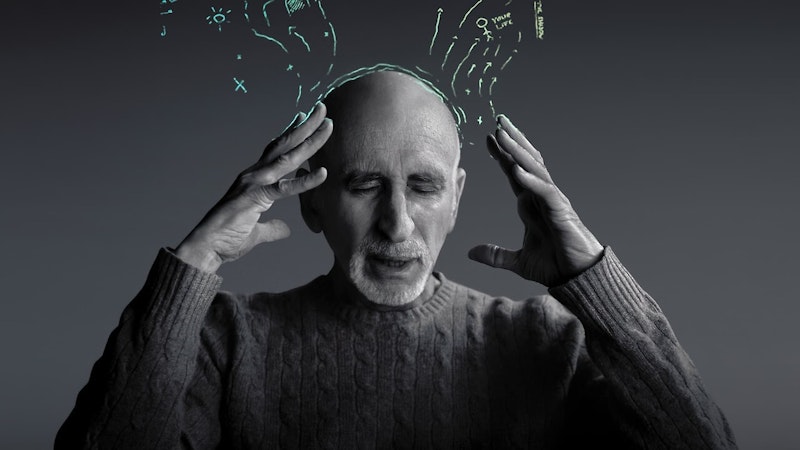Most people want to be healthier. Some are actively searching for answers, others are fine living in darkness. But this darkness and anguish can only be ignored so long until a fission occurs, and life as we know it begins to break apart.
Jonah Hill’s Netflix documentary, Stutz, explores the life and work of a psychiatrist, Phil Stutz, who’s famous for his unusual yet wholistic approach to psychiatry and treatment of patients. It wouldn’t be a stretch to express a surprise at seeing Jonah Hill make a documentary. At the same time, the film is authentically honest about Stutz’s life.
Phil Stutz is known for many bestsellers he has written with Barry Michels, most notably The Tools, which involve five approaches to mental healing. This is the subject of Hill’s documentary but it’s not limited to the exploration of Stutz’s work. Hill chooses to ask Stutz questions about his life and how he came up with “results-oriented practice” to help people.
Shot mostly in black and white, the entire documentary is a series of conversations between Stutz and Hill. We witness Stutz, the man and the psychiatrist, not mincing words about either Hill’s or his own life. In the midst of reflection on Stutz’s childhood and early adulthood, we see a man suffering from Parkinson’s disease, yet he has a great sense of humor. An interesting person emerges as continued conversations unravel.
Stutz’s approach to healing people is fairly straight-forward, and has to do with the movement forward. We tend to get stuck in what he calls “the maze,” where we relive the past, making it difficult to move forward and live a life of action. This approach affirms the possibility of being, and is giving people the freedom and responsibility to help themselves. As a psychiatrist, Stutz reflects, he found it unacceptable to not offer any solutions to his patients.
We also see a man, who’s carried the burdens of his own past: his younger brother dying as a small child, his parents completely shutting down afterwards, and his mother’s hatred of men, which has left Stutz feeling inadequate and unstable. Yet, the story of this man and what he’s done to help others, transcends the possible pit of despair that he could’ve wallowed in.
Hill doesn’t reveal that many details about his life. Granted, the documentary is about Stutz, however, Hill leads viewers to believe that this documentary will be about his own healing as well. There are a few glimpses of Hill taking off the symbolic mask: he talks about being an overweight boy and how this affected him, and very briefly mentions his brother’s death, which doesn’t get any treatment at all. Unfortunately, this part of the documentary swerves into overly emotional territory. One wonders if most of the problems, such as anxiety attacks, that Hill experiences are self-induced. This isn’t to say that panic attacks aren’t real or that it’s difficult to overcome such issues. Without a doubt, Stutz’s “tools” are helpful and commonsensical. As much as they acknowledge emotional pains of the past, they mainly involve taking control of one’s life, and choosing to not be the prisoner of the past. But the question remains whether Hill has fully employed Stutz’s approach. (He has chosen not to promote the documentary or his latest film because of panic attacks that he continues to experience.)
There are many self-help gurus, but Phil Stutz is in another category. Hill may have chosen not to reveal himself in the documentary but Stutz is very authentic and honest about his life. He’s far from perfect, but keeps going, one step a time, always forward. His work speaks for itself, and he’s made a partial niche for himself: a psychiatrist to the Hollywood stars.
The trouble with our overly self-analyzed culture is exactly that particular turn into the self (something Hollywood elite is good at). Unless there’s some connection to a larger community and perhaps even God, a human being will not be able to heal him or herself in any way. Humility borne out of faith is the rock upon which life is made stronger, otherwise, people will be stuck in an endless loop of some kind of journey of self-discovery.
Stutz is well-made. Hill made excellent aesthetic choices and Phil Stutz’s life is treated with care, respect, and even love. The documentary is elegant and provocative, yet without agitation. One part that’s missing is the discovery of Jonah Hill. It would’ve made the documentary stronger, and created a powerful juxtaposition between a therapist and a patient. But that journey, which requires absolute authenticity, is perhaps best left for Jonah Hill himself.

